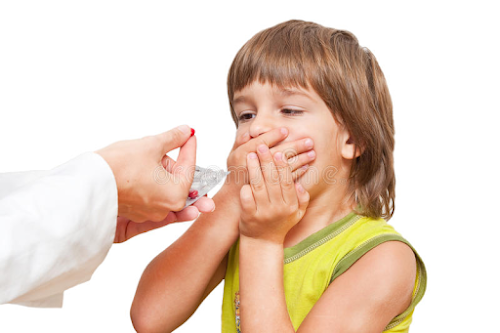
Case: 12 year old Max is adamant about not taking his meds. He says, there's just no way he can swallow those drugs. Max's mother is especially concerned about the drugs' long-term effects on his regular growth and development.
Adults, defined as those who are 18 years of age or older, are expected to make consent-informed treatment decisions (Eberhard, 2020). This defines the underlying concept of a doctor-patient interaction is this. In pediatrics, however, where joint decision-making is encouraged, informed consent is a combination of parental approval and child assent (Eberhard, 2020). When a parent and child are on the same page, this works well, but it falls apart when there is disagreement about the best treatment alternatives (Eberhard, 2020).
3 Ways to Resolve Conflict When Children Refuse Treatment
When children refuse treatment, there are three options for resolving the conflict:1. Defer to the Parent's Wishes
Us nurses rely on the parents to convince their child to take the medication right away (Eberhard, 2020). Although the child's decision to refuse the prescription has been recognized, it is limited in that the parents are the ultimate decision makers, and despite the child's objections, they will ensure that the drug is administered as planned (Eberhard, 2020).
2. The Provider Agreeing that Taking the Medication is not Necessary
When the child refuses to take the medication, the nurse should document and inform the physician (Eberhard, 2020). Alternatively, the physician might suggest an alternative prescription after hearing the child's objections to the medication. (Eberhard, 2020)
In this case, instead of tablets, the physician could prescribe max medication to Max in the form of liquids. This gives Max the option of taking liquid or tablet medicine, and it also opens the door to the possibility including in the form of tablets in the future if the child agrees (Eberhard, 2020).
Because Max is suffering from depression, there are medications that can be in liquid form, two examples of antidepressants are Prozac (fluoxetine) and Lexapro (escitalopram). Prozac is given to children ages 8 and older, can be offered as a liquid (120ml of 20mg/5ml) or a tablet/capsule (10 mg, 20mg, 40 mg)(GoodRX, n.d). Lexapro (escitalopram) is offered to children ages 12 and older, and can be offered as a liquid (5mg/5ml) or a tablet (5mg, 10mg, 20mg)(GoodRX, n.d).
3. An Attempt at Arbitration
This is the recommended option in almost every case. It also appears to be the most common option (Eberhard, 2020). The arbitration part may be fascinating, and it frequently gives a glimpse into the parent-child relationship (Eberhard, 2020). In order to get the child to cooperate, the parents commonly use coercion, such as threatening to take away a child's phone/toy or another activity until the child cooperates (Eberhard, 2020). If the parents have followed through with arbitration in the past, then this would helpful. However, if the child is really resistant to taking the medication, and still refuses to cooperate, it might backfire. Parents then will try a positive approach, such as buying the child ice-cream if they take the medication, which is more likely to be effective (Eberhard, 2020).
Clinical Recommendation Towards Parents
Other reasons why children do not take their medications include parents’ lack of understanding of the diagnosis, concerns about drug therapy effectiveness, and fear of medication side effects (Gardiner & Dvorkin, 2006). This becomes a barrier of medication adherence. (Gardiner & Dvorkin, 2006)
The best course of action is when prescribing medications to children, give the parent educational materials to improve adherence (Gardiner & Dvorkin, 2006). This includes the nurse providing parents medication technique training (e.g., inhaler, injection, or dropper use) are helpful tools, so that children can have assistance at home (Gardiner & Dvorkin, 2006).
In this case, the nurse can educate Max's mother on how important the medication is for Max, discussing the benefits of the medication, side effects of the medication and special considerations to take pertaining to the administration of medicine.
It is important for the parents to be involved and aware of their child's plan of care, as they are the ultimate legal decision-maker (legal guardians) on what care they allow their child to receive.
References
Eberhard, A.
(2020, January 17). Ethics Forum: 3 Ways to Resolve Conflict When





Comments
Post a Comment